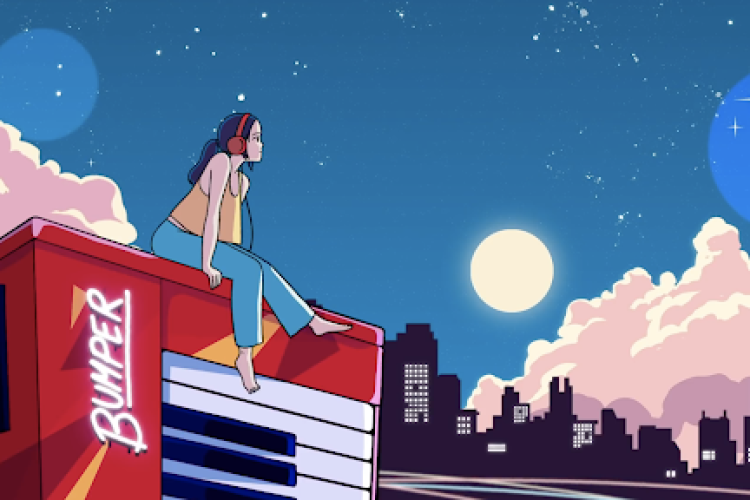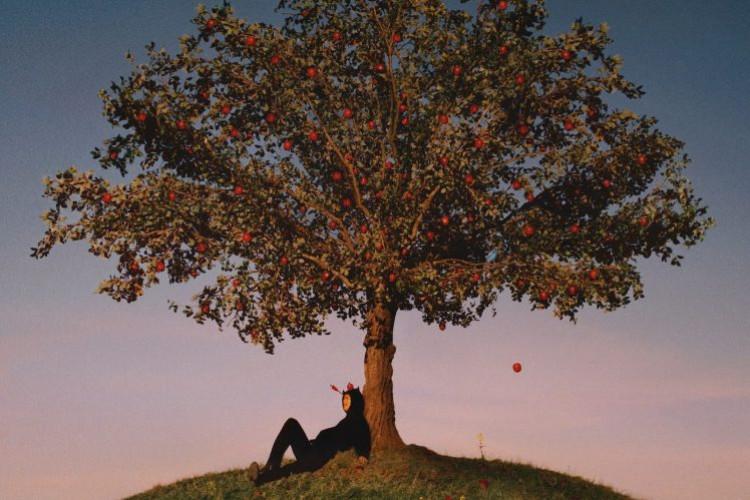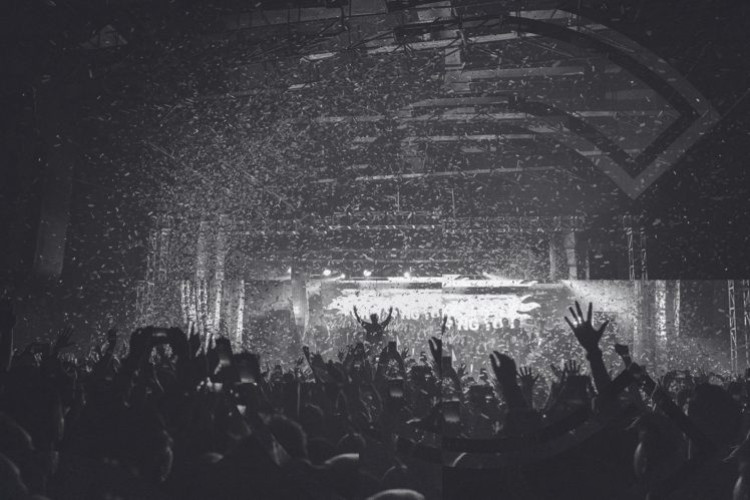
Thundercat Talks About Anime, Playing Bass for Suicidal Tendencies, and Honesty
We had the chance to chat with Thundercat about honesty in music, his collaboration with music icons, and the importance of finding humour in art.
Words by Ghina Sabrina
Photo: Quinn Dunziellas
If there is one artist whose works are as entertaining and humorous as it is also virtuosic, it’s Thundercat. The bassist, producer, singer-songwriter, and Grammy winner Stephen Bruner a.k.a. Thundercat has it all. His fourth album “It Is What It Is” earned him his second Grammy, while also featuring musical icons like Steve Arrington, Childish Gambino, Ty Dolla $ign, to Lil B. He recently debuted a new song for the anime “Yasuke” alongside longtime collaborator and Brainfeeder label boss Flying Lotus. And that’s only a few of the myriad projects he was and still is involved in. I got the chance to catch up with him mid-errands about his musical collaborations in his latest album and with Flying Lotus, the way Suicidal Tendencies sharpened his craft, and the huge potential of merging popular music with anime.
Congratulations on your recent GRAMMY! While it isn’t your first, how does receiving an award like that affect the way you navigate the music industry?
The first time it came around it was very difficult because I emotionally have never been in a place where I have received an accolade for something that I’ve done like that. But the second time around, I think I was a bit more emotionally prepared for it. And I was saying earlier how an award like that can put a spotlight on you, and whatever’s going on in that moment can be amplified or diminished in such a way to where it’s too much. So, being the first time I wasn’t prepared. It kind of was a bit of a hard time processing, but the second time – being this time – it was a bit easier.
Does it come with challenges in creating your next record?
I always think about something Erykah Badu taught me, which was that it’s not a race.
I don’t think so much. I think it feels a bit easy. I always think about something Erykah Badu taught me, which was that it’s not a race. The creation [of music] and stuff like that is who you are. So compared to the feeling of pressure, I feel more at peace right now because I know that that’s something that I do. So as I feel, it comes.
It’s a really nice perspective.
Yeah, I know.
Most of the time collaborations between artists stem from a genuine appreciation for each other’s works. As you’ve done this most of the time in your album, how did you approach your collaborators?
I feel like it happens quite naturally. It’s not something that’s too forced. Sometimes I get ideas for stuff and then you can only ask. And the worst a person could tell you is ‘no’. And it’s one of those things that you’ll never know if you don’t ask. Or try to find something new.
I feel like it’s something where the reality is a lot of the people I collaborated with are genuinely my friends. They’re people that I spend time with in life and grow together, so it’s a bit natural how it comes about. And at the same time, when it presents itself, because it’s such an emotionally-based process there’s a part of it where, like I said, the worst thing somebody can say is ‘no’. And I can’t be afraid of that, but all I can do is push forward. And a lot of the time I feel like – I try to make it [the process] fun, try to have a good idea to share it with my friend as compared to dragging them down to some weird corridor and making it weird.
What was the writing process usually like?
The reality is a lot of the people I collaborated with are genuinely my friends.
It comes from many different places. It’s not just rooted in one specific way. I guess it’s safe to say, to a degree, that everything does start from the bass for the most part. But at the same time, sometimes it starts from an idea in my head melodically, sometimes it can be some lyrics that I’ve been hearing or something that feels a certain way – it’s kind of like an itch and if I ever want to hear something then I try to create it. Sometimes I just have to be open to the many different ways it comes about.
In “It Is What It Is”, you combined all of these emotions of grief, love and friendship in one long musical journey. How did you decide which stories to tell in the album?
I will always have to thank Flying Lotus for helping me tell the story. A lot of the time, one thing I’ve always tried to hold true to is that the one place you can be honest is in your art and in your music. I think there is no separation between real life and the art sometimes. I’m just not afraid of that for the most part, and I embrace it. And with a partner like Flying Lotus, he encourages me to be that way. I think he enjoys seeing the stuff that comes out because of that. If there’s something that I’ve learnt from him, it was to be honest in the music.
A lot of the time, one thing I’ve always tried to hold true to is that the one place you can be honest is in your art and in your music.
Speaking of Flying Lotus, you’ve been close collaborators ever since the beginning of your career as Thundercat. How does that come about?
We both really just dug each other’s work. We both were very open to each other when we first met. We had heard about each other from different things. I knew of his music, he knew of my work with other people and it happened almost over a decade ago. The day we met, it was at SXSW and it was a cool moment. We both knew that we gotta do something together but we didn’t know what it was going to be. We didn’t know that we were going to create a massive body of work the way that we have but we just were very excited about the idea and the possibilities. And because of that we kind of just fed off of each other’s energy a lot. And still to this day we find synergy between us and try to create things.
Humour and absurdity play a big part in your music and your personality – with memes being an integral part of your Twitter. What are your thoughts on the importance of humour at times like these?
I always think it’s important to laugh. I think humour is very important. I think that laughter helps you process things sometimes, even if it’s like you’re not processing. It helps you.
I feel like in music especially, in the art, the ability to laugh is important.
I feel like in music especially, in the art, the ability to laugh is important. I think that nobody is really laughing right now because everything is pretty horrible but I think that the horrible part in itself is pretty funny. So, I just always try to find humour in many things. Even when it’s not funny, I’ve got to find the humour.
You mentioned in an interview that your experience in Suicidal Tendencies sharpened your craft in music. How was having a hardcore background shaped the musician you are today?
For sure. Working with Mike Muir taught me to stand in the front and be my own artist. He taught me to not be afraid of the audience and the energy that hardcore punk music has had to offer. It taught me a bit of grit, attitude and to not think about anything other than what I was doing on stage. He would always push me out and he would force me to play. He would want me to play more, and I would have all kinds of things happen; people throwing shoes at me – I would be playing too many notes and somebody would be like “What is this?” – but it kind of moulded who I am as a musician. Like being in my own world on stage. So it shaped the character of who I am a bit.
I was wondering if your bass playing technique was formed during your tenure in Suicidal Tendencies?
For sure, that’s part of the informal training I would consider. It was very much developed on stage with Suicidal Tendencies.
With your background, it’s also important that you show other musicians how music isn’t defined in just one genre – that it’s possible to pick elements from other genres and create a thing of your own.
Yeah, the world is big when it comes to art. I think that it should not be limited to genre sometimes because it just makes it short-sighted. I get the idea of genres to sell things but at the same time it’s kind of like music is just good or bad to me.
You’re a big fan of anime and you’ve had your own fair share of music used in anime series like “Carole & Tuesday”, “Yasuke” and you recently wrote a new track for the ThunderCats reboot. Do you see yourself being involved in more projects like these in the future?
Heck yeah, I love anime.
How do you see the potential of more popular music being used in anime in the future?
I think that what the Japanese have started with this is a beautiful thing. I hope that there will be more or less different influences in the future when it comes to the music in anime because it’s important for people to show everything from representation to just creating something new. Because of how much Japan affects the world, I think that it’s a good thing to show these types of connections. Especially if they’re genuine, which I am always hoping for. It’s only good to show these types of lines of connectivity so that it would allow for greater art to be made.
Would you consider creating your own anime series?
Yeah. Maybe not a series but more like a movie. I have a couple of ideas.
What’s your favourite anime?
It’s hard to say favourite. I have one that I do love more because of the emotional sense of attachment, “Hokuto no Ken” (Fist of the North Star). That’s one of my favourite cartoons. But I also really love “Neon Genesis Evangelion” and “Naruto”. I mean from “Akira”, “Perfect Blue” to “Berserk”, these are all favourites. “Cowboy Bebop”, it’s also a favourite.
Speaking of live music, while it hasn’t been going on due to the pandemic, it’s slowly coming back. You’ve got some shows lined up, how do you feel about playing live again after more than a year?
I’m happy about it. It’s the one thing I’ve done my whole life and it was kind of taken away from me. I would be very grateful and thankful for the chance of playing live again. I had a long conversation with Kamasi Washington, who’s not in America right now, and we were kind of tripping out because it was like when was the last time we didn’t touch our instruments for this amount of time? And both of us, the conclusion is, I haven’t been this grounded like this since I was about 14 years old. Since I was a kid and living with my parents, I have never not been able to move freely and create like I would. So it’s such a weird dynamic because I’ve spent the majority of my life playing live, and for it to be taken away in the manner that it was, it was very deafening. It was very complicated to cope with, to emotionally try to be okay with. But because things are opening back up I think it’s going to be fun. It’s going to be very emotional. I never took it for granted before, I never did. But now it feels a bit special too because I’m very grateful for the chance to get to play again.
Are you thinking of treating live shows differently? And have you thought of trying out new possibilities in these shows?
I mean I always had fun. I hope to just keep having fun. I feel a couple of ways about it. One way is that, I don’t feel like Joni Mitchell or Jimi Hendrix had to do that. And I feel like music is a reward on its own. So there is a part of me that doesn’t necessarily look to technology as compared to the compassion behind what goes into the work that you do. But at the same time, I’m not an old guy that’s like “I’m not going to acknowledge the future”, I’m 100% going to acknowledge the future and know that there’s so many different possibilities. The thing that also excites me is the possibilities, so there’s a part of me that is willing to embrace it if there’s something different. I would love to try something new.
Any exciting projects that you can share?
I’ve been doing a lot of kickboxing (laughs). That’s pretty exciting and painful. There’s a few things that I can’t really mention right now that are definitely in the works but I’ll feel a lot better talking about stuff maybe when I get the chance to play on stage again.











